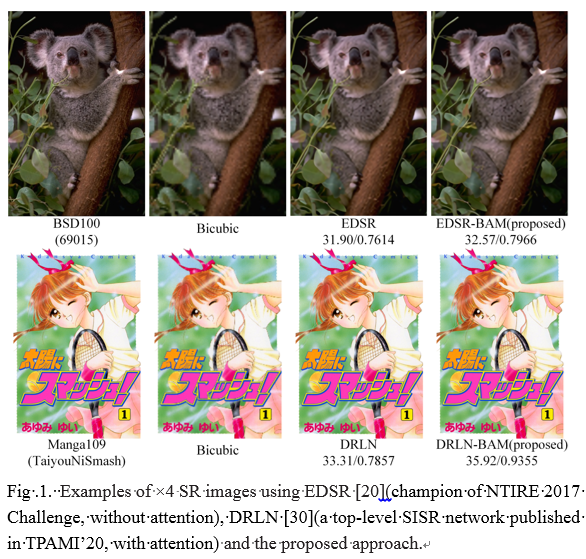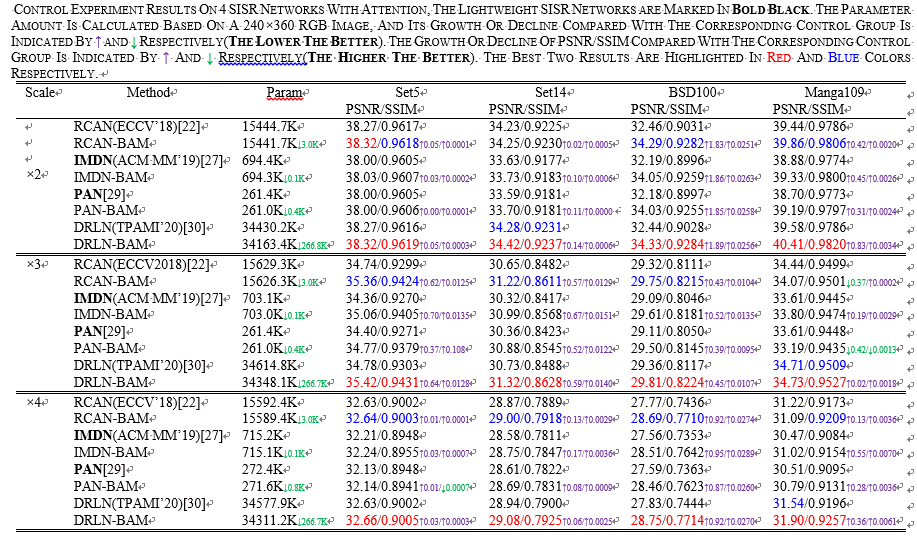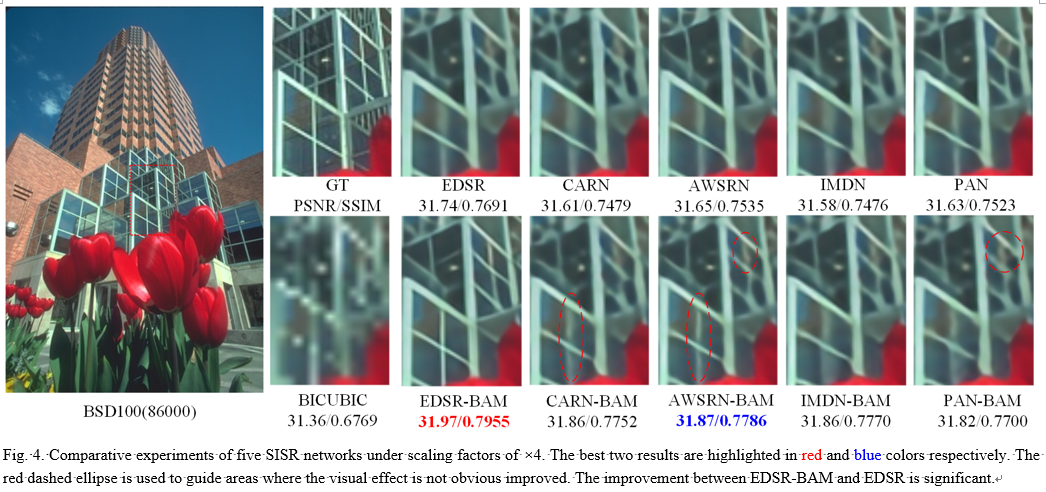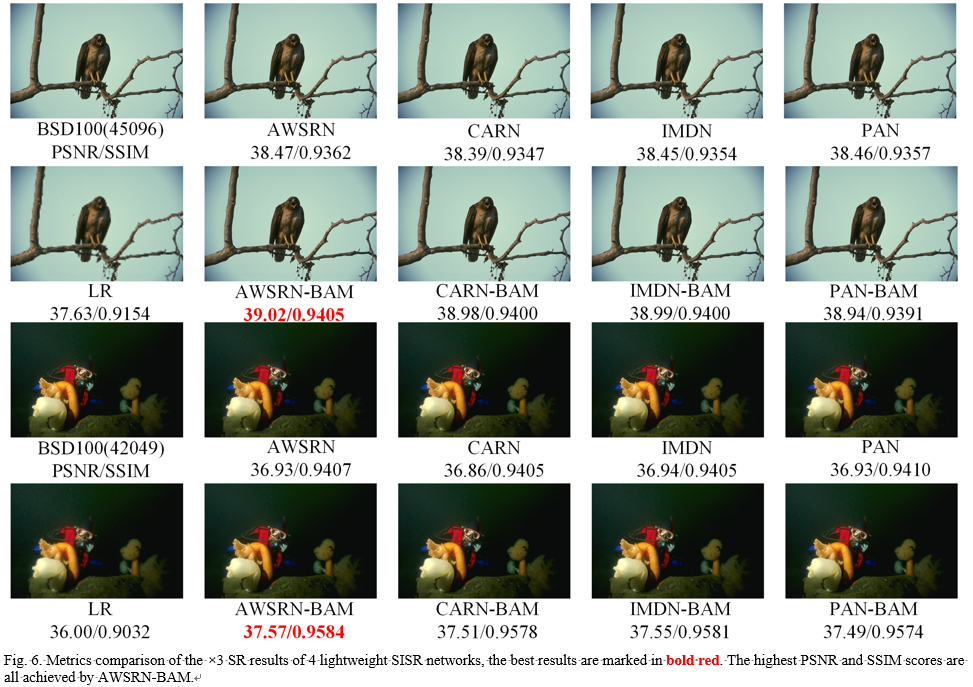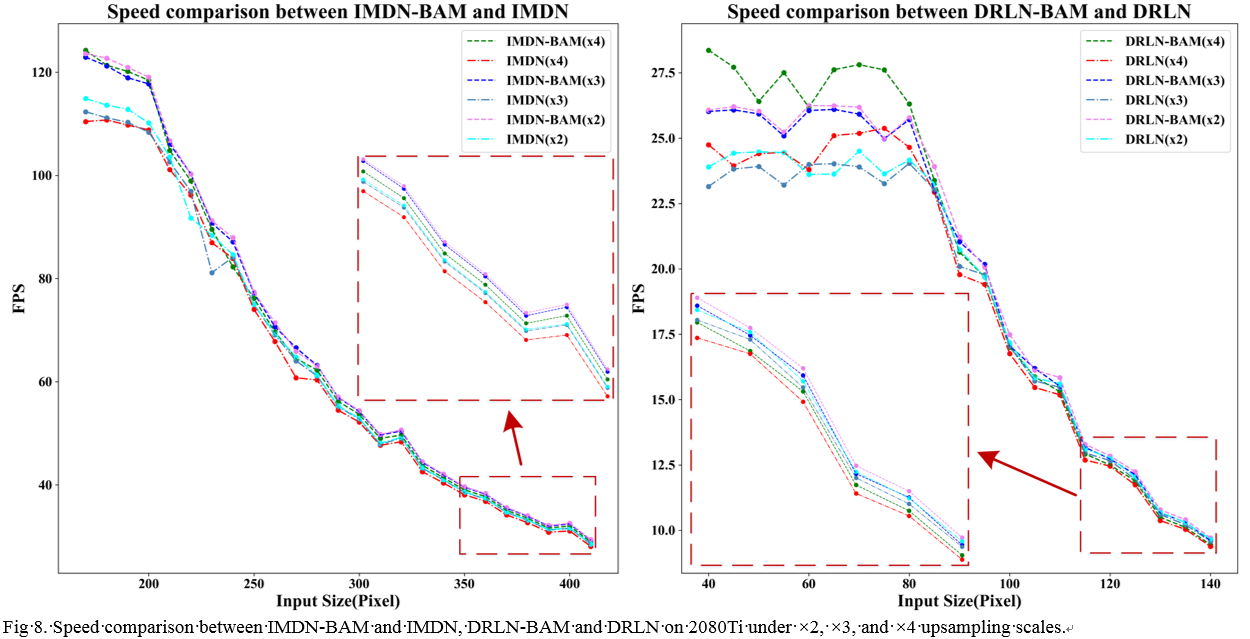This project is built from IDN, and thanks for the contributions of all the other researchers those who made their codes accessible.
- PyTorch>=1.0.0
- Numpy 1.15.4
- Pillow 5.4.1
- h5py 2.8.0
- tqdm 4.30.0
Some of the indicators in the MSRN paper are quite different from the indicators given in the original author's open source code, and the indicators in the open source code are used:https://github.com/MIVRC/MSRN-PyTorch
The DIV2K, Set5 dataset converted to HDF5 can be downloaded from the links below.Otherwise, you can use prepare.py to create custom dataset.
| Dataset | Scale | Type | Link |
|---|---|---|---|
| DIV2K | 2 | Train | Download |
| DIV2K | 3 | Train | Download |
| DIV2K | 4 | Train | Download |
| Set5 | 2 | Eval | Download |
| Set5 | 3 | Eval | Download |
| Set5 | 4 | Eval | Download |
The Flickr2K dataset can be downloaded from the links below,and then you can use prepare.py to create custom dataset.
https://link.csdn.net/?target=http%3A%2F%2Fcv.snu.ac.kr%2Fresearch%2FEDSR%2FFlickr2K.tar
for preparedata: python3 prepare.py --images-dir ../../DIV2K/DIV2K_train_HR --output-path ./h5file_DIV2K_train_HR_x4_train --scale 4 --eval False
for train: python3 train.py --choose_net DRLN_BlancedAttention --train_file ./h5file_mirflickr_train_HR_x3_train --eval_file ./h5file_Set5_x4_test
for eval all SR size && all networks(you should download checkpoints first); python3 eval_allsize_allnet.py
for eval dingle image: python3 eval_singleimg.py --lr_image_file ./savedimg/Set5/4/EDSR_blanced_attention_2.png --hr_image_file ../classical_SR_datasets/Set5/Set5/butterfly.png
for infer all size && all networks SR images(the SR images will be saved in the direct ./savedimg/*): python3 infer_allsize_allnet.py
##checkpoints We provide all network && all size checkpoints to prove that our experiments are convincing. you can get them from:https://pan.baidu.com/s/1gy-3jcikT2h-QfRduwoibg password: 2ubm
If the password fails or any other questions, please contact me:[email protected]
##Our Attention mechanism is very tiny and efficient, and has also been proved to be efficient in semantic segmentation missions,especially for light-weight models.
